150 years after the death of Angelo Mariani (Ravenna 11 October 1821- Genua 13 June 1873)
Orchestra dell’Accademia del Teatro alla Scala
Solisti dell’Accademia del Teatro alla Scala
Donato Renzetti conductor
Giuseppe Verdi
from Aroldo Overture
from Giovanna D’Arco “O fatidica foresta”
soprano Greta Doveri
from Attila Preludio “Mentre gonfiarsi l’anima“
bass Livio Li Huanhong
from La traviata “È strano!… Sempre libera”
soprano Zhou Fan
from Don Carlos Preludio, ballabili from act III
Gaetano Donizetti
from Lucia di Lammermoor “Tombe degli avi miei”
tenor Andrea Tanzillo
Charles Gounod
from Faust “Alerte, alerte, ou vous êtes perdus!”
soprano Zhou Fan, tenor Andrea Tanzillo, bass Livio Li Huanhong
Richard Wagner
from Lohengrin Prelude to act I
from Tannhäuser Overture
in collaboration with Associazione Musicale Angelo Mariani di Ravenna
It had to be Verdi and Wagner, the two undisputed giants of nineteenth-century opera and now the pillars of a concert commemorating the 150thanniversary of Angelo Mariani’s birth. If the former was a long-time personal friend and collaborator of Mariani’s (although they had a serious falling out due to misunderstandings and probably romantic jealousy), the latter owed the first Italian performances of his operas to Mariani, who conducted the premieres of both Lohengrinand Tannhäuser in Bologna. This further widened the rift with the great composer from Busseto, who perhaps also blamed the charismatic Ravenna-born musician for the liberties he took with other people’s scores. However, Mariani played an important role in the rise of the modern professional conductor, combining the roles of maestro concertatoreand direttore d’orchestra to achieve “a true unity of performance, conception and interpretation”.






